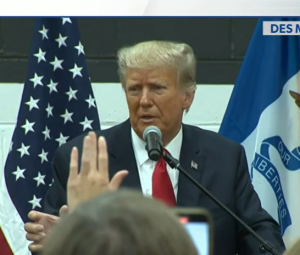Donald Trump made headlines on August 10 when he invoked his Fifth Amendment rights in a New York deposition, in connection with a civil investigation into the finances of the Trump Organization. The former US President later released a statement, saying that he “declined to answer the questions under the rights and privileges afforded to every citizen under the United States Constitution.”
Donald Trump has a reputation for being on the opposite pole of the Fifth Amendment. However, when he did it himself, it made headlines in many countries around the world, where citizens flocked to the Internet to find out what ‘pleading the Fifth’ means in the US.
Also Read: Donald Trump declines to answer in NY probe, invokes Fifth Amendment rights
A similar trend was followed by the Indian citizens, who flocked to the Internet to find out what pleading the Fifth means. However, while the Fifth Amendment of the Bill of Rights in the US Constitution is solely restricted to the American citizens, the Indian Constitution offers a similar right to the Indians. Let’s find out what it is.
The Constitution of India is the longest written Constitution in the world. It came into effect on January 26, 1950, three years after the independence of the country. The Constitution of India was written by Dr BR Ambedkar and lays down the framework of modern India.
The Constitution of India holds 470 articles. Several rights have been laid down for the citizens of India, some of which guarantee the right to life and personal liberty to every Indian. Article 20 (3) of the Indian Constitution, which is also known as the Right against Self-Incrimination, says, “No person accused of an offence shall be compelled to be a witness against himself.”
In layman’s terms, according to the Indian Constitution, the Right against Self-Incrimination underlines that an accused does not need to become a witness against himself and give out incriminating evidence. Article 20 (3) is also known to be a safeguard in the court of law for the defendant, who is being compelled to do something that he does not want to do.
Also Read: What does pleading the Fifth Amendment mean?
However, while defendants are offered the protection of Article 20 (3), witnesses do not share the same right. According to the Right against Self-Incrimination, the defendant must be informed of their rights before making any statements, a defendant cannot be compelled to give any statements and if the defendant has been pressured into giving a self-implicating statement, it would not be accepted in a court of law.
The Supreme Court of India also included oral and documents that might turn into implicating evidence to the word ‘witness’ in the Right against Self-Incrimination.







